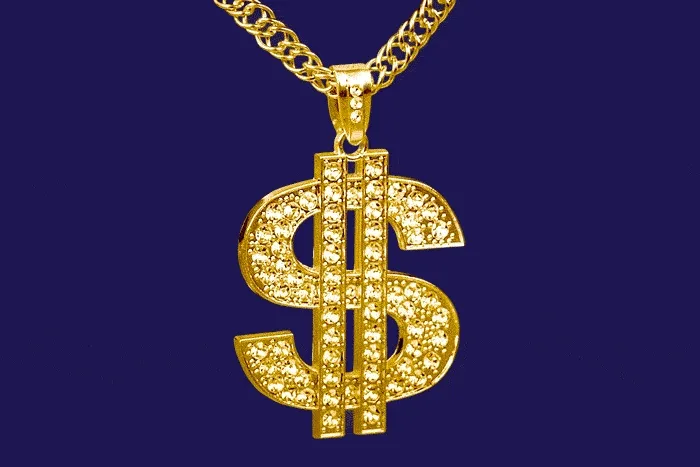Yearning for earnings? Check out Public.com, the investing platform for serious traders. You can build a multi-asset portfolio of stocks, bonds, options, crypto, and more. Access industry-leading yields like the 4.1% APY* so you can earn on your cash with no fees or minimums.
When Lil Pump repeated the lyrics “Gucci Gang” 53 times in one song, we didn’t think of it as an economic indicator (or a very good song). But it turned out to be a sign of the times.
These days, the biggest summer bangers aren’t name-dropping luxury goods like they used to. In fact, mentions of expensive brands in rap songs have been declining since their heyday between 2020 and 2023, according to Bloomberg.
The peak came the week of May 31, 2020, when 30 of the Billboard top 50 hip-hop and R&B songs mentioned luxury brands. Through the week of June 15, 2025, only 7 songs gave a shout-out to luxury goods.
The lack of name-dropping in music mirrors a real-life phenomenon: Storied luxury firms are floundering.
What rhymes with recession?
Just look at Tapestry, the conglomerate that owns brands like Coach, Kate Spade, and Stuart Weitzman. The luxury giant dropped its latest quarterly earnings today, and seems to have successfully turned around its crown jewel, Coach—the brand’s sales jumped 14% year over year.
But Tapetry’s stock still dipped 15.8% after full-year earnings guidance came in below expectations. It didn’t help that revenue from its Kate Spade brand dropped 13% year over year.
Everyone else is struggling, too. The luxury goods industry has lost about 50 million customers over the past two years, according to data from Bain & Co. There’s no sign of it stopping, either: Bain expects the personal luxury goods market to shrink between 2% and 5% this year.
LVMH, the biggest luxury conglomerate in the world and the owner of brands like Christian Dior, Givenchy, and Hennessy, is down 14.87% this year after reporting a 9% drop in Q2 sales for its fashion and leather goods division, largely due to an economic slowdown in China. Chinese customers represent a large chunk of luxury goods customers, but a domestic downturn has kept their wallets closed lately.
Another headwind for the sector is Gen Z ditching luxury brands and spending their money on experiences instead. And don’t forget that the sector is about to be hit by another wave: tariffs. UBS projected that a 15% tariff on exports will force luxury brands to raise prices by about 2%, according to Reuters.
Luxury at a discount
All that said, brands are rolling out more affordable accessories to gain momentum, and many analysts see this downturn as a temporary blip.
In fact, periods of lower demand for luxury goods haven’t lasted longer than two years over the past three decades, according to senior equity analyst at Morningstar Jelena Sokolova. She also noted that the luxury market’s downturn means that the sector’s valuations look attractive right now.
Maybe investors should try to keep it Gucci after all.—LB


